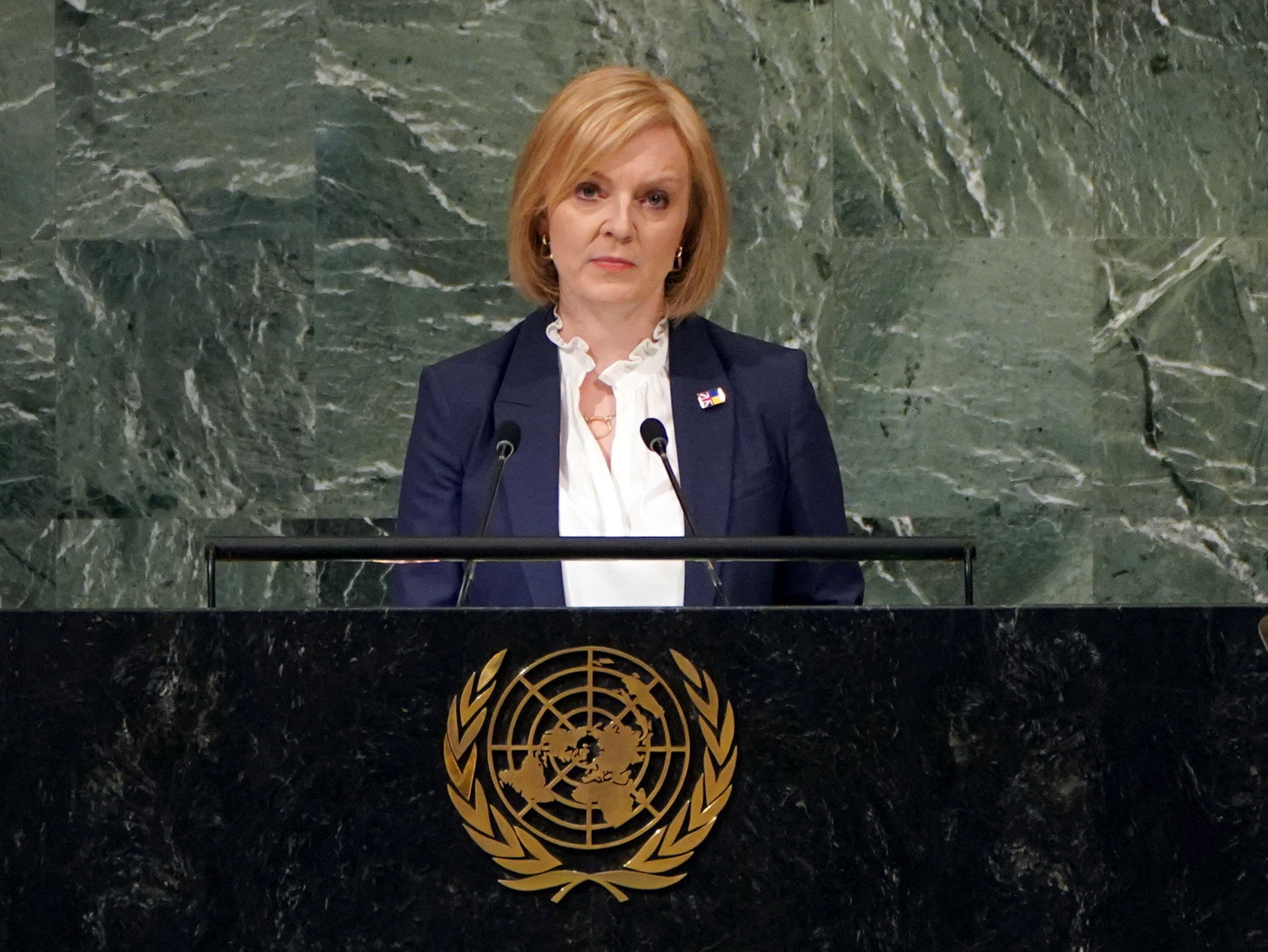The economic and political outlook is poor for the prime minister
Editorial: The depreciation of sterling in recent days will itself automatically boost inflation, and there is no guarantee that the pound won’t sink further

In the children’s stories of Doctor Dolittle there is a creature named the pushmi-pullyu, which is a sort of llama with two heads, one at each end of its body. Because it has no hind legs – only two sets of front legs – and is of two minds, the pushmi-pullyu has to be careful to make sure it proceeds smoothly in the desired direction. If each end decides to go its separate way, chaos ensues.
This is rather like the way Britain is trying to run its economy, with chaos – the lowest level against the dollar ever – the predictable result. The Treasury is attempting to avoid recession and set Britain on a path to growth with an unfunded and unprecedented fiscal boost: tax cuts.
This is rash at a time of accelerating inflation. Worse, it is also confusing, as the Bank of England has felt obliged to try to pre-empt and neutralise the fiscal boost by raising interest rates. The Bank is trying to take money and spending power out of the economy as fast as the chancellor is pumping it in.
In terms of aggregate demand, the Bank and the Treasury are operating conflicting policies, pushmi-pullyu style. Investors, therefore, are thoroughly spooked by the conflicting forces being exerted. All might be well if they believed as sincerely as Kwasi Kwarteng apparently does in the self-evident merits of his “plan for growth”.
Sadly, they do not, and neither does the Bank. It is choosing, as it legally must, to place price stability ahead of phantasmagorical dreams of a trend growth rate of 2.5 per cent.
The chancellor briefs that even more unfunded tax cuts are on the way; the Bank clearly signals that the trajectory for interest rates, and thus mortgage bills and the cost of working capital for business, is sharply upwards. The Office for Budget Responsibility has been gagged and the permanent secretary to the Treasury fired, presumably for speaking truth to power. Result: an old-fashioned run on the pound.
Grim as the news is for inflation and interest rates, it made a perfect backdrop for the opening day of the Labour conference. British politics finds itself in the unusual position of a Tory government boosting consumption by unfunded tax cuts and unspecified (but massive) increases in borrowing, and a shadow chancellor pledging fiscal responsibility and strong fiscal rules.
Labour’s Rachel Reeves, who has never held a government job, suddenly seems competent and responsible, while Mr Kwarteng has acquired a reputation for being arrogant and reckless, with each unfortunate trait reinforcing the other. Mr Kwarteng is dumping Treasury orthodoxy just as Ms Reeves is lovingly embracing it.
So Ms Reeves was gifted a morning in which the world’s financial markets blew a series of multinational, multilingual raspberries in the direction of Mr Kwarteng and Liz Truss.
The prime minister has a problem. She can stick with her chancellor, a close political ally, stick to the policy and watch sterling slide further, or at least remain weak. Or she can execute the fastest Budget U-turn in history and somehow reverse or amend the tax cuts with as much poise as she and Mr Kwarteng can manage.
Or she can watch as the Bank of England, driven by market sentiment, ramps interest rates up as dramatically as it cut them in the financial crisis in 2008-09 – and wrecks any chance of avoiding recession and boosting growth, even in the short term. Perhaps, deep down, she is reflecting on the warnings about the economy she herself issued when she campaigned for Remain in the 2016 EU referendum, because Brexit is uniquely adding to Britain’s plight.
For Ms Truss, then, there are no good options, given the mistakes already made by her and Mr Kwarteng. After all, the chancellor is merely “delivering” on the promises she made during the Conservative leadership election. Be that as it may, her MPs must be dismayed at how rapidly the “new” government is disintegrating, with much worse to follow as recession sets in.
To keep up to speed with all the latest opinions and comment sign up to our free weekly Voices Dispatches newsletter by clicking here
Many of her MPs, including prominent figures such as Rishi Sunak and Michael Gove, made no secret of their doubts about Ms Truss’s policies; and she lacked decisive parliamentary support in the leadership election. Her mandate is weaker than it seems, and she is more vulnerable as a result (her party members would have kept Boris Johnson, given the chance).
The economic and political outlook is poor for the prime minister. The depreciation of sterling in recent days will itself automatically boost inflation, and there is no guarantee that the pound won’t sink below the psychological $1 barrier in the coming days or weeks.
It is a political humiliation as great as when the pound was ejected from the European Exchange Rate Mechanism in 1992, the sterling crises of 1985 and 1976, and the devaluations of 1967 and 1949. Such economic turning points usually end up in political collapse, in due course. If and when the Tories lose the next election, the plan for growth might turn out to be the point of no return for the party’s fortunes.






Join our commenting forum
Join thought-provoking conversations, follow other Independent readers and see their replies
Comments